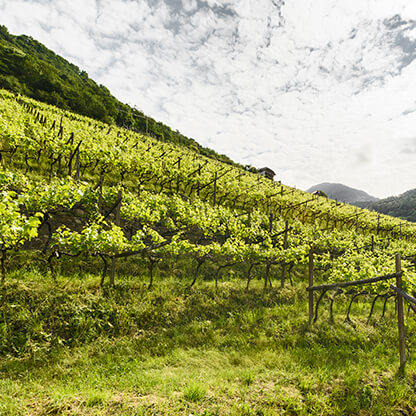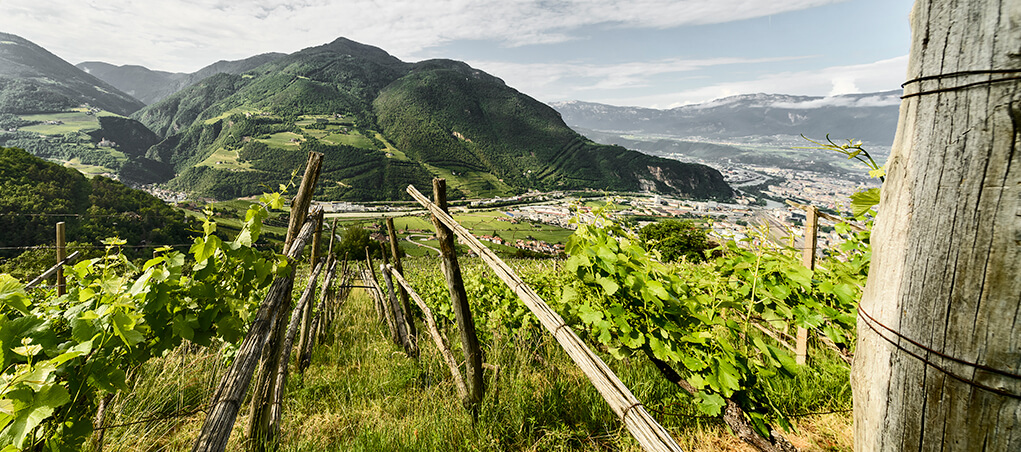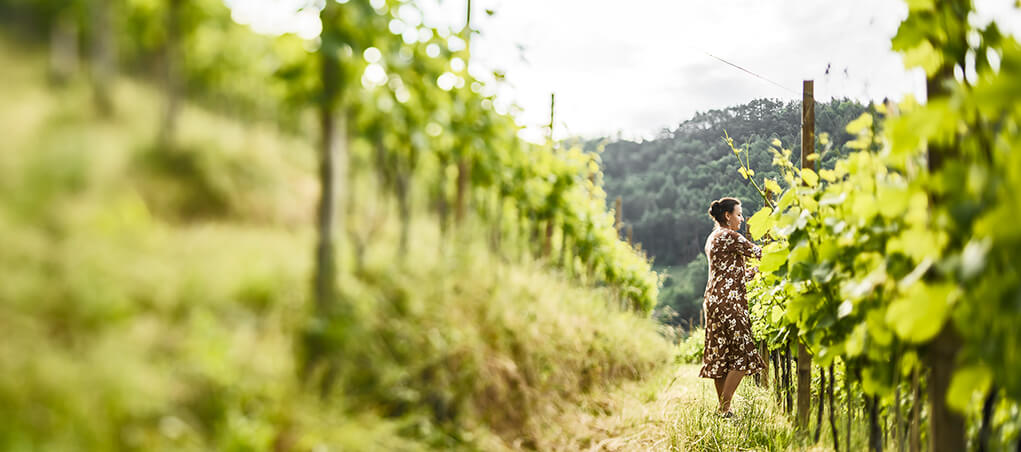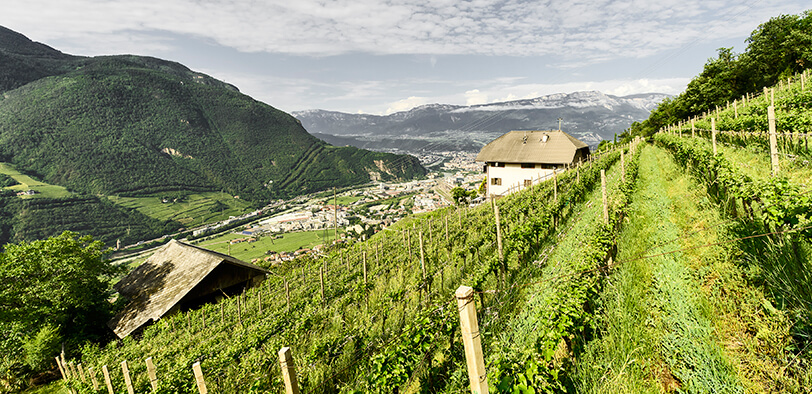
Gleifner-Hof
Santa Maddalena
Girl power in the vineyard.
Women have always played a central role on the farms of South Tyrol. Without their work in the fields and the house, the farms would never have been viable. In a more recent development, young female winegrowers are increasingly running the family business. One of them is Maria Romaner, who took over the vineyards from her father as the youngest of three sisters. Maria studied viticulture at college; the love of wine is in her blood. When it was time for the next generation to take charge of the business, she says she felt a sense of responsibility for preserving the great achievements of her ancestors for future generations.
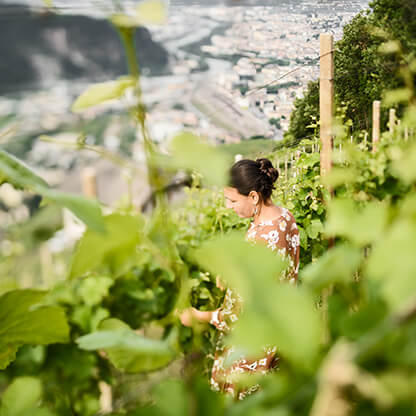
Wine growers as stewards of the landscape.
The Gleifnerhof occupies one of those sun-blessed sites that extend from the village of Santa Maddalena up to the Renon, where grapes for winemaking have been grown for centuries at an altitude of between 450 and 700 meters above sea level. For Maria, who previously studied politics and economics, managing the six hectares of vineyards is also about the role of the wine grower as a steward of the landscape. “Wine growing defines the cultural landscape of Alto Adige,” she says.
Near natural and sustainable.
The traditional Santa Maddalena wine (a cuvée of Schiava and Lagrein) is still produced at the Gleifnerhof and accounts for a good half of the area under cultivation . “I feel committed to this tradition,” says Maria, who also goes new ways in some respects. “For me winegrowing should be a sustainable activity and as near natural as possible.” By way of illustration, she does not use nets to keep the birds off the vines in autumn. “Let them have something to eat, too,” says Maria, laughing, and she adds: “That won’t hurt us.
